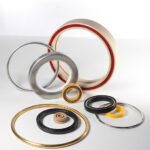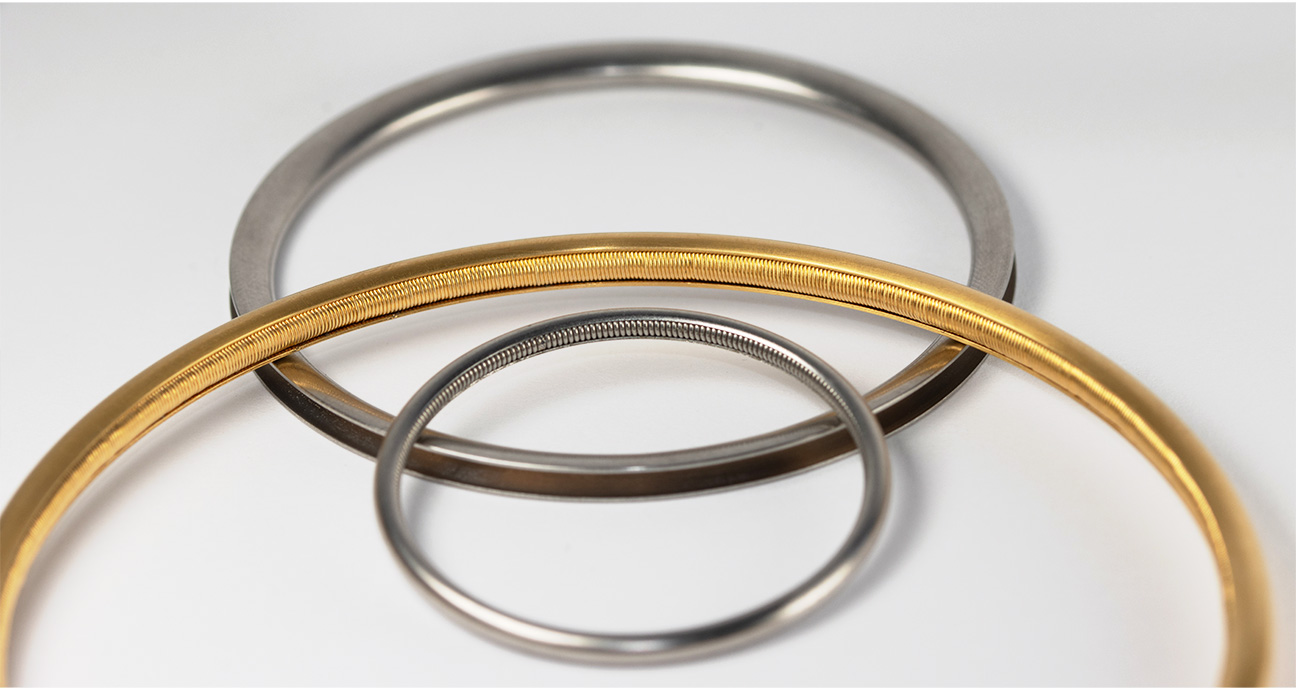
Metal C-Rings
Metal C-rings are highly elastic static seals ideal for high-demand machinery and installations, offering greater elasticity than metal O-rings and other metal seals. Their prestressed forces vary based on factors like material, heat, tolerances, and treatment. Sealing is achieved through the spring-back of the C-rings, accommodating movements within the flanged joint. The prestress/deformation is approximately 20% of the ring height.
Suitable for internal and external pressure or axial thrust, metal C-rings operate self-energizing and are available in diameters from 6.5 mm to 3000 mm, with profile sections from 0.9 mm to 6.4 mm. They come in the same materials and coatings as O-rings, with Inconel 718 as the standard material. They can be used in temperatures up to 750 degrees centigrade and can handle high-vacuum to ultrahigh pressure ranges of 5500 bar.
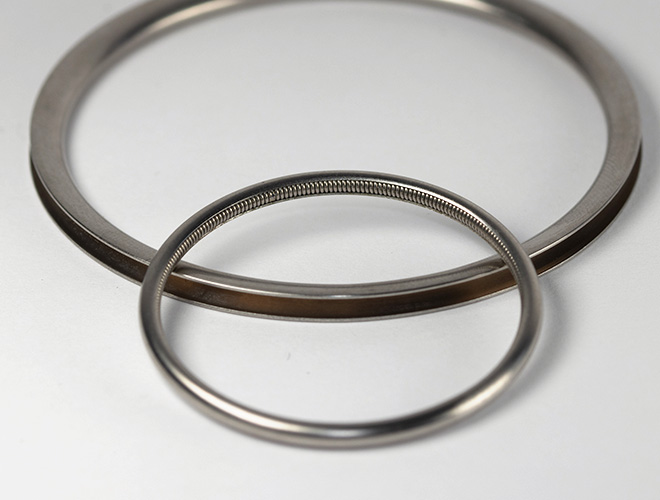
Advantages & Usage
- seals vacuum, gases and liquids
- pressure ranges from UHV up to 5500 bar
- service temperatures up to 750°C
- lowest leakage rates through additional coating
- Resistant to explosive decompression
- Simple force calculations (force shunt)
Metal C-Ring Types
Metal C-rings offer greater elasticity compared to metal O-rings. The open side of the metal C-ring is oriented towards the higher pressure, providing a self-energizing effect. Including spring reinforcement enhances both the sealing effect and the springback of the ring.
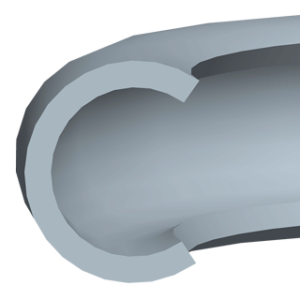
Metal C-Ring for Internal Pressure (MCI): a resilient internally pressurized static face seal open on the inside, enabling it to bear the same pressure as its internal operational conditions. Ideal for assemblies, pressure vessels, jet engines, fuel injectors, lighter flanges, etc.
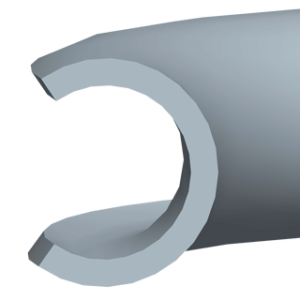
Metal C-Ring for External Pressure (MCO): a robust externally pressurized static face seal open on the outside, designed to withstand the same pressure as its external operational conditions. It comes with good springback properties to accommodate thermal cycles.
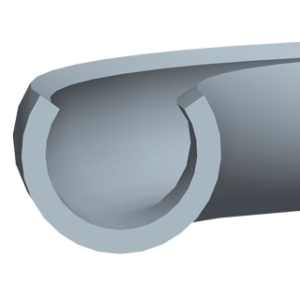
Metal C-Ring for Axial Pressure (MCA): a sturdy dynamic axial seal designed to endure the same pressure as its axial operational conditions. It’s an optimal choice for static and low-cycle dynamic axial sealing applications. It is suitable for use in various industrial settings, including hydraulic systems and high-temperature shaft sealing.
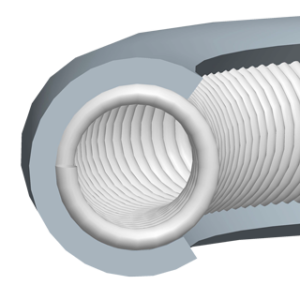
Metal C-Ring, spring energized for Internal Pressure (MCI-F): shaped like MCI, but this ring can handle higher loads, making it suitable for use with rougher mating surfaces. It excels in applications such as pressure vessel closures, manways, hand-holes, steam generators, gasoline/diesel engine fire rings, and exhaust joints. It’s the best choice for non-flat mating surfaces. While it’s primarily designed for internally pressurized joints, it can also be used for externally pressurized joints to prevent the working fluid from entering the seal cavity, albeit at a reduced working pressure rating.
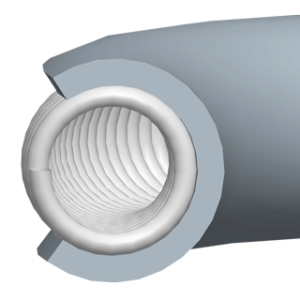
Metal C-Ring, spring energized for External Pressure (MCO-F): shaped like MCO, but this ring can withstand higher loads, making it ideal for use with rougher mating surfaces. It’s primarily designed for externally pressurized joints and flanges with a rougher surface finish. Additionally, it can be used for internally pressurized joints to prevent the working fluid from entering the seal cavity, although this comes with a reduced working pressure rating.
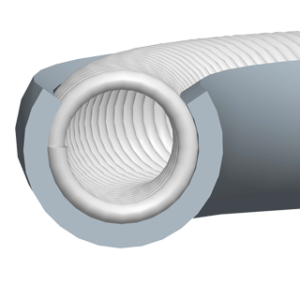
Metal C-Ring, spring energized for External Pressure (MCO-F): shaped like MCA, but this seal is designed to handle higher loads, making it suitable for use with rougher mating surfaces. It’s primarily intended for applications that require static and low-cycle dynamic axial sealing. The addition of spring reinforcement enhances the seal’s performance and resilience, making it an ideal choice for various high-demand applications.
C-Ring Material
Selecting the appropriate metal for C-rings is a critical decision that hinges on understanding the unique properties, strengths, and limitations of various metal options available
SS304 (Stainless Steel 304)
SS304 is a widely used stainless steel alloy known for its excellent formability and corrosion resistance. This alloy is versatile and suitable for c-rings in various commercial, industrial, and consumer applications.
However, SS304 does have its limitations. It can corrode under acidic conditions when exposed to high gas pressure over 5 bars or in the presence of salts and chlorides. It’s recommended that SS304 operates at a maximum temperature of 400 degrees Celsius.
To enhance its durability and resistance to environmental factors, a coating can be applied to SS304 seals, offering additional protection against air and salts.
Inconel X-750
Inconel X-750 is an age-hardened, nickel-based superalloy known for its high-temperature strength and corrosion resistance. It’s particularly useful in high-temperature conditions, offering high tensile and creep rupture properties. The alloy’s strength can be optimized at temperatures between 700 and 975 degrees Celsius.
Inconel 718
Inconel 718 is an age-hardenable nickel superalloy known for its exceptional high-temperature strength and good oxidation resistance. It boasts excellent cold-forming characteristics and offers a higher strength than X-750. A standout feature of Inconel 718 is its ability to undergo precipitation hardening without cracking after welding, allowing it to maintain high tensile strength while offering high formability.
This alloy suits various c-ring types up to maximum service temperature. It is especially useful in applications with large thermal and mechanical transients, such as gas turbines and aerospace components. Additionally, due to its robust properties, Inconel 718 is a preferred choice for cryogenic storage tanks, downhole shafts, and wellhead components.
Generally, stainless steel, like SS304, tends to be less expensive than nickel-based alloys like Inconel. If cost is a significant factor, SS304 might be the more economical choice.
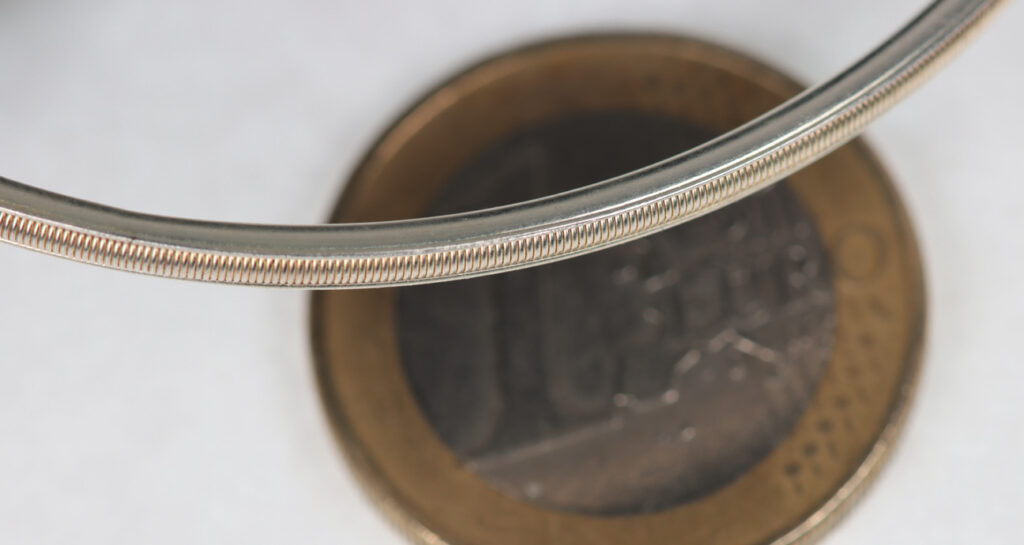
Coating
Coating or electroplating the metal C-ring enhances adhesion and creates a more ductile (softer) surface, allowing it to adapt to microscopic imperfections in the groove or flange.
When the C-ring is compressed, the coating fills the microscopic irregularities of the opposing seal, ensuring excellent sealing. The achieved tightness, measured as the leakage rate, depends on the ring's interaction and the sealing's surface quality.
The desired leakage rate and the surface quality of the groove and flange determine the need for a coating and its thickness. The coating must match the ring's pressing load to ensure effective sealing.
Coating Materials
- Copper: a soft material that enhances sealing performance and minimizes leakage rates. It offers good corrosion resistance and boosts tribo-oxidation resistance, making it a popular choice for c-rings where lubrication is crucial.
- Silver: This cost-effective option provides superior oxidation and chemical resistance. It adheres well and is suitable for high-temperature applications. Silver enhances operational safety and is a less expensive alternative to gold coating.
- Tin: In various forms, tin improves leakage rates and smooths metal seal surfaces. It offers moderate corrosion resistance and effective gas barrier protection, though it's not ideal for high-temperature applications.
- PTFE: This polymer layer is known for its excellent sliding properties, low friction coefficient, and high elasticity. It provides superior corrosion resistance, making it suitable for aggressive environments. Despite a higher cost, it's deemed cost-effective due to the improved performance and lifespan of metal seals.
- Gold: Gold provides exceptional corrosion, wear resistance, and workability. Its malleability makes it suitable for high-temperature applications and dynamic operations, though it is the most expensive coating option.
- Nickel: Nickel coating is characterized by its high hardness, wear resistance, and good corrosion resistance. It's suitable for high-temperature and pressure applications and reduces the static friction of metal seals. It is also a significant barrier, protecting the base metal surface from corrosion attacks.
Heat Treatment
C-Rings can undergo various heat treatments based on their materials and uses. Appropriate heat treatment can enhance both the performance and lifespan of the rings:
- Mechanical Properties: Heat treatment enhances the mechanical properties of the metal, such as hardness, toughness, and tensile strength. This can make the O-rings more durable and resistant to wear and tear, which is particularly important in high-pressure or high-temperature applications.
- Internal Stresses: The manufacturing process can introduce internal stresses into the metal. If not relieved, these stresses could lead to deformation or failure of the O-ring during use. Heat treatment can help to relieve these stresses and stabilize the metal.
- Corrosion Resistance: Certain heat treatment processes can improve the corrosion resistance of the metal, which can be beneficial in applications where the O-ring is exposed to corrosive substances.
- Dimensional Stability: Heat treatment can help to ensure that the O-ring maintains its shape and size under varying temperature conditions.
Following heat treatments are possible:
| Heat treatment | Description |
| HT1 | work hardened |
| HT2 | age hardened |
| HT3 | Solution annealing + precipitation hardened SC |
| HT4 | Solution annealing + precipitation hardened Std |
| HT5 | Heat treatment NACE MR 0175, |
Not all heat treatments are applicable for every material, the following table listst the applicable treatments:
| Material | Material Code | Heat Treatments |
| SS304 | 1.4306 | HT1 |
| Inconel X-750 | 2.4669 | HT1, HT2, HT3, HT4 |
| Inconel X-750 | 2.4668 | HT1, HT2, HT3, HT4, HT5 |
| Inconel 718 | 2.4668 | application-dependent |
The specification for this treatment can be determined either by the customer or by Eurosealings, as long as all the necessary parameters and requirements are readily available.
Order Code Key
We use a specific order key to effectively communicate the specifications of our metal C-rings, such as material, diameter, coating, and other pertinent details.

The order example MCI-532-096,80-1S1 in the example above corresponds to a metal C-ring designed for internal pressure, specifically of the MCI type.
It’s made from Inconel X-750, with a free height of 2.4 mm and a wall thickness of 0.25 mm. The ring has an outside diameter of 96.80 mm, excluding the plating thickness. This ring is conventionally cold-hardened and coated with silver, with a coating thickness ranging from 0.15 to 0.30 mm.
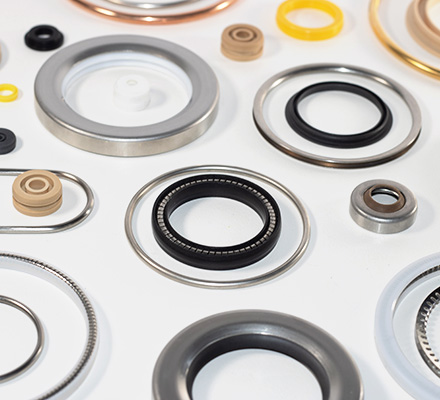
Avoid Pitfalls in C-Ring Sealing Design
Let us help you tailor your unique sealing solution. Every project is unique, and we've seen many mistakes that could have been avoided.
Reach out to us today to create a seamless sealing solution.
